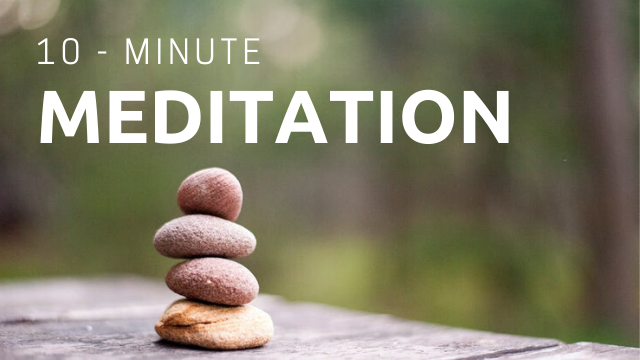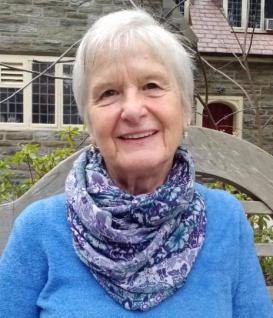
 Deborah Cooper of Germantown Monthly Meeting has been practicing mindfulness and Buddhism for the last 15 years. Deborah is a licensed professional counselor in private practice and is a provider for the Friends Counseling Service. She studied Mindfulness Stress Reduction at Thomas Jefferson Hospital.
Deborah Cooper of Germantown Monthly Meeting has been practicing mindfulness and Buddhism for the last 15 years. Deborah is a licensed professional counselor in private practice and is a provider for the Friends Counseling Service. She studied Mindfulness Stress Reduction at Thomas Jefferson Hospital.
Deborah recounted the journey that leads to her discovering a Mindfulness-Based Stress Reduction (MBSR) course, enrolling, and becoming convinced that mindfulness was also healing.
“I got involved with MBSR after I suffered a very painful personal loss. And as a good English woman, I had learned that when things are painful, you just have a stiff upper lip and keep ongoing. I took an MBSR course, and what I learned through that was that, if I allowed myself to come in touch with the depths of my grief, it would not break me. I could bear it. And I think that is what has led me to be so completely committed to this work”
Deborah studies with a meditation teacher in England, who is a former monk and regularly attends silent meditation retreats.
“Mindfulness is described by Jon Kabat-Zinn, the founder of MBSR, as being aware of exactly what’s happening at the moment, without judgment.” She added, “For most of us when we are looking at ‘how to be aware,’ we are aware of that (fact); it’s a sunny day, or perhaps the cat is rubbing my feet, or I’m talking to you. But it is equally important (to connect with) what’s going on inside, what’s happening in thinking, in the body, with the emotions. And so, learning to become mindful is being, as often as possible, aware of both of all those domains. Both the outside and the inside.”
In this period of pandemic everybody’s lives have been affected or disrupted, and Deborah believes that to be able to deal with and to be able to be helpful to others, we need to be willing to open ourselves up to a deeper consideration of mental, psychological, and corporeal awareness and work to integrate the whole.
She says, “This work has a lot of value in our present situation.”
“There’s a teaching from the Buddha of — the two arrows,” she continues. “The first arrow is a fact; in this case, we have the Coronavirus. We have a dangerous situation where many people are afraid, of ill health, of losing somebody they love or of financial insecurity. Those are the facts. But the second arrow is what we do with that. So we tell ourselves, all kinds of stories, how terrible it’s going to be. We get so involved in all the things that might happen in the future. And that is the second arrow. So our work is to learn to be just with what is here now, right now.”
In meditation, we are breathing. We feel the air within us, a sense of warmth or coolness, an awareness of our stillness within a particular moment. We also release the dancing, glancing play of the mind and refocus on the internal resonances of mind, body, and soul. It is in this release that we find balance, rest, and maybe even joy.
In this period of uncertainty, there are powerful benefits to meditation. It is an incredible tool to build attentiveness to what is happening in our bodies and to our selves. To help you tap into Deborah’s teaching, we have shared an audio file of a ten-minute meditation.
Deborah offers meditation sessions through zoom for various groups in Philadelphia. To receive updates on classes and meditation retreats, she recommends subscribing to her blog: https://deborahcoopermeditation.wordpress.com/.